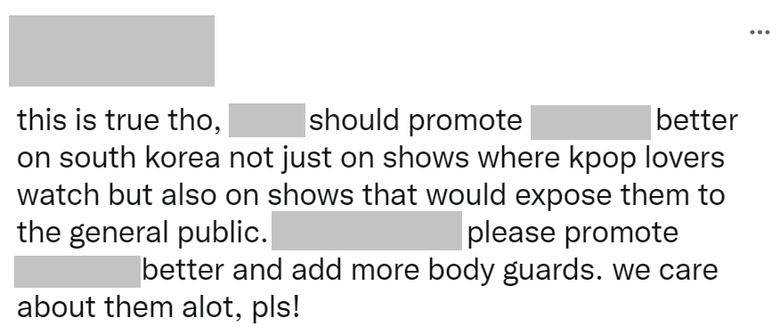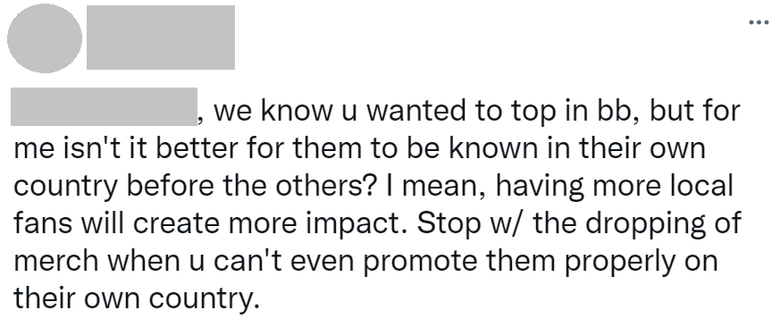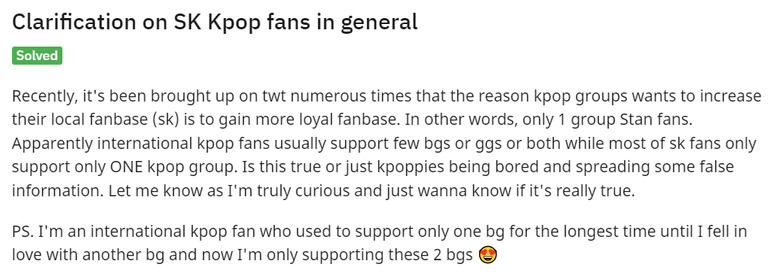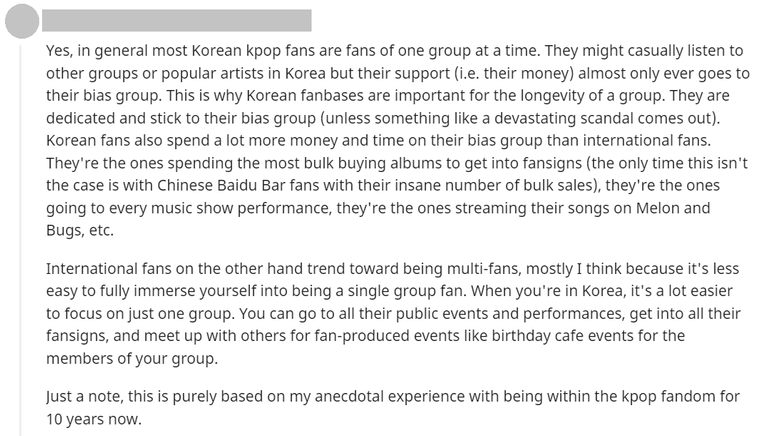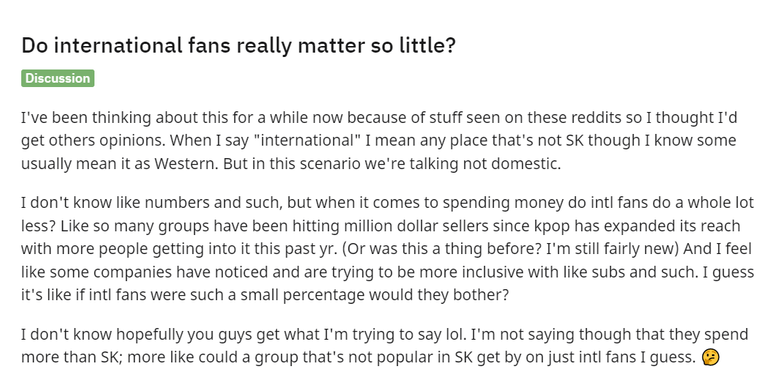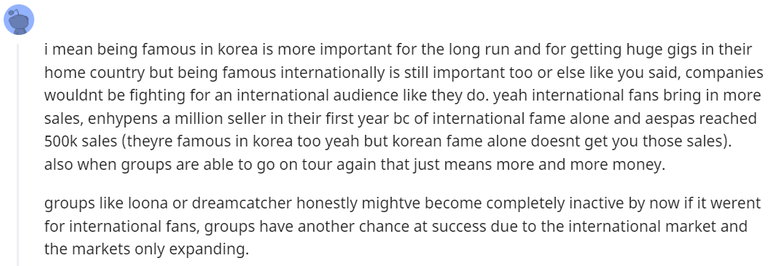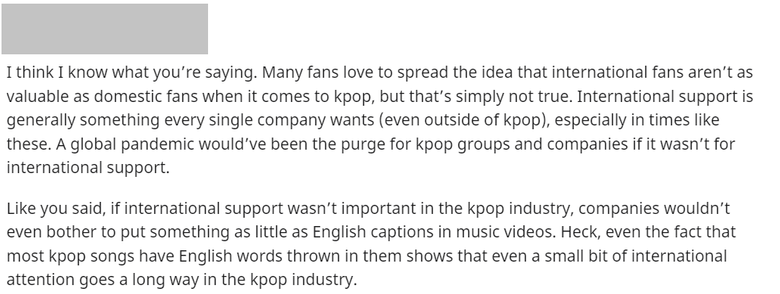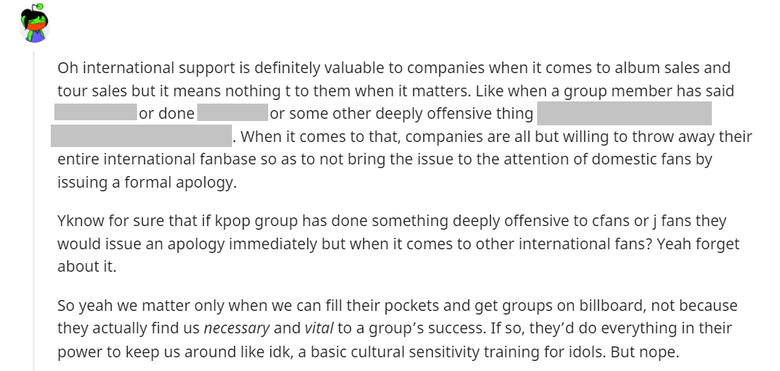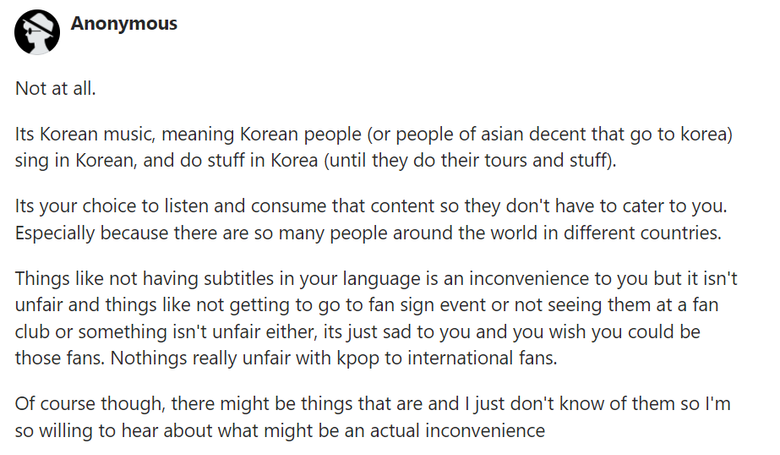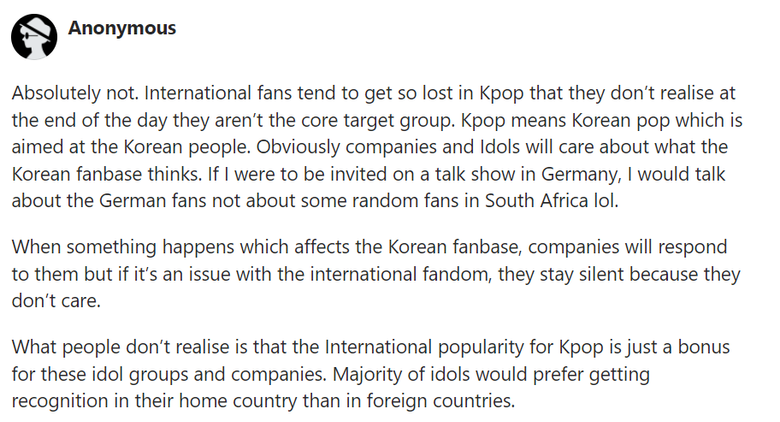The K-Pop industry is ever-evolving with a constant influx of talent and resources that contribute to the capitalistic machinery funding it all. The more idols entertainment companies can debut, the more content they can create, and naturally, as a result, the more money they can make. With the overwhelming popularity of K-Pop all over the world, Netizens believe that idols have to now appeal to a global audience and this has affected their promotional strategies significantly. The perceived shift in the K-Pop industry to cater to a multicultural, international consumer base in recent times has sparked a debate on the importance of domestic fans on the one hand and international fans on the other. Netizens are questioning whether success in South Korea and equal success overseas are similarly valuable or one is more impactful than another. However, rather than being an argument, this topic has taken the form of a healthy discourse where both Korean and international fans are chiming in with their opinions. Most recently, this discussion was opened up from a thread post by a Twitter user who laid out a number of reasons why a particular K-Pop company should refocus its efforts on establishing a loyal domestic fan base for their artists. Note: Sensitive information pointing towards particular groups/companies/individuals has been redacted to maintain generality. The opinions of Netizens do not reflect those of Kpopmap. “[Redacted] agency, please think of a new strategy. Since [redacted] there have been many more overseas fans than domestic fans but this time, you should come to your senses and gather more domestic fans. Due to the nature of K-Pop, the more domestic fans there are, the better it will be over time. Most overseas fans are all over the place and if there is an alternative group, they change (fandoms) immediately.” OP goes on to state that companies should create more free content to generate buzz and release unscripted shows providing observational entertainment rather than scripted variety shows that don’t bring out the real personalities of idols. Such content will make it easier for fans to relate to their idols and connect with them on a deeper level, thus forming a core group of fans who are dedicated to the group. In addition, OP claims that paid contents deter casual fans from joining the fandom in a full-fledged way because what truly matters to fans is whether the members are working hard and doing well on stage. By trying to cater all the promotional content towards international fans, OP believes that the company is ignoring the domestic fandom, which in turn is making the idols themselves do the same by holding back on natural communication with Korean fans and instead, trying to accommodate international fans. Finally, OP concludes by saying that international fans are drawn to K-Pop because of its inherent Korean nature. If companies modify their concepts too much to match international standards, the popularity of K-Pop will decline. You can read the complete thread here. In response to this thread, international fans have shown their agreement on some points and disagreement on others. International fans seem to unanimously agree that K-Pop groups need to have strong fanbases in their home country regardless of their popularity overseas. However, they do take offense to the statement that international fans are less loyal than Korean fans. Similar conversations take place on platforms like Reddit and Quora as well. The following response to the above post attributes the importance of Korean fanbases of K-Pop groups to their tendency to be fiercely supportive of one group only and invest their energy in the same. Similarly, this next post raises the question of whether K-Pop groups that are only popular overseas and not as much in South Korea can survive for a considerably long period of time without the significant engagement of Korean fans. In response, some users have opined that while international success is one of the major factors contributing to sales, the Korean fanbase is much more important in terms of longevity. In addition, an important point about cultural sensitivity was also raised by users, bringing to light the double standards they see when it comes to the treatment of international fans by K-Pop companies. Similarly, an active debate also exists on the internet about the importance that idols give to Korean fans as opposed to international fans. While some international fans think that idols’ adoration for Korean fans alienates or excludes them, others believe that it is natural for them to have a special fondness for their home ground. While we have tried to highlight as many sides to the situation as possible, the matter is still an open discussion. What are your thoughts on domestic and/or international K-Pop fandoms? Do you think one is more important than the other? If so, why? Share your thoughts with Kpopmap in the comments section down below! Netizens Discuss Comeback Promotion Periods: Do You Think K-Pop Idols Should Promote For Longer? FANBUZZ|Mar 23, 2022



